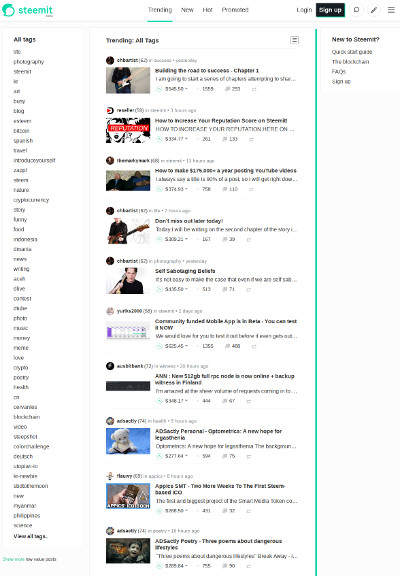Crypto
BlogCrypto to USD
CalculatorWallets &
TransactionsCurrency
ConverterProfit or Loss
CalculatorIs It Too Late
To Invest?Do I Have
Enough Coin?Buy High
Sell LowBuy The Dip
Sell High
Buy Low

Bookmarks
Crypto Purchase History
Portfolio Overview
Transaction History
 Bitcoin is what springs to mind when anyone utters the phrase "cryptocurrency" because it is most widespread and the one that receives the most media attention. Since bitcoin, there have been countless, and I mean countless other cryptocurrencies that have been developed in order to satisfy people's need for choice.
Bitcoin is what springs to mind when anyone utters the phrase "cryptocurrency" because it is most widespread and the one that receives the most media attention. Since bitcoin, there have been countless, and I mean countless other cryptocurrencies that have been developed in order to satisfy people's need for choice.
Many of the virtual currencies that have been developed over the past few years have revolutionized the way companies do business and handle transactions online, all with the use of various cryptography and mathematical techniques.
If we round up all of the different cryptocurrencies with their different levels of value, you'll find that the total market cap of all cryptocurrencies comes to a massive $457 billion with over 1500 different cryptocurrencies to choose from, they all offer their own unique ways of improving online experiences.
Many would argue that the use of these cryptocurrencies actually make it easier and produce a safer environment to transfer funds between individuals and companies by using public and private keys. These public and private keys are generated after you obtain a wallet address for the respective cryptocurrency of your choice, whether that be, Bitcoin, Verge, Moreno or Steem.
Believe it or not there have actually been previous attempts at creating digital currencies before, during the 1990's. At the time, popular systems like Flooz, Beenz and Digicash all attempted to create their own versions of digital cash but all inevitably failed.
One of the main reasons why these previous attempts failed at developing a virtual currency, was mainly due to the fact that there had been concerns regarding important security issues. All three of those companies are all linked in some way, as they all used third parties to validate and verify transactions.
 As we know from cryptocurrencies today, none of them function using centralised technology but rather they function on utilising the power of decentralised technology, which is to build a cryptocurrency on top of a decentralised network called blockchain.
As we know from cryptocurrencies today, none of them function using centralised technology but rather they function on utilising the power of decentralised technology, which is to build a cryptocurrency on top of a decentralised network called blockchain.
Steem is a blockchain-based rewards platform for publishers to monetize content and grow community. Steem is a Smart Media Token, SMTs are like Ethereum's ERC-20 tokens, but with certain built-in 'Proof-of-Brain' properties and a token distribution reward system designed specifically for digital content businesses.
Think of Steem similar to the point system found on a credit card. However, because thi points system is blockchain-based, the points can be traded on markets as tokens. People buy and sell these tokens, and many hold in anticipation of increased purchasing power for various Steem-related services.
Steem is the cryptocurrency that users can earn on the Steemit platform. Steemit believes that the users of the platform should receive the benefits and rewards for their attention and the contributions they make to the platform.
Users of the platform can create and curate content on Steemit just like other social news platforms, like Reddit for example and get rewarded in Steem for their work by producing content. In many ways, you could say that Steemit is very similar to many other virtual currencies, in the sense that Steemit units can be traded, bought and sold on exchange platforms.
Although other cryptocurrencies like bitcoin can be mined and distributed, Steemit allows for the practice of mining, but it is not the primary way to earn money from it. The Steemit cryptocurrency is created by the network itself and distributed to the users who engage with the Steemit website, the quote "the more you engage, the more you get" seems to be doing the rounds.
Steem token; not to be confused with the game distrubtion service Steam
Steemit is basically a cryptocurrency for people who create really great content, and are then rewarded with it. People can upvote on certain pieces that are even more engaging as well as users who comment on various discussions.
The Steem blockchain mints new STEEM tokens and adds them to a community's "rewards pool". These tokens are then awarded to users for their contributions, based on the votes that their content receives. Users who hold more tokens in their account as "Steem Power" will get to decide where a larger portion of the rewards pool is distributed.
Steemit.com is one of the many websites (including Busy.org, DTube, and Utopian.io) that are powered by the Steem blockchain and STEEM cryptocurrency. All of these websites read and write content to the Steem blockchain, which stores the content in an immutable blockchain ledger, and rewards users for their contributions with digital tokens called STEEM.